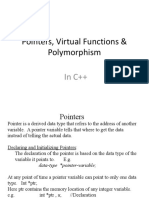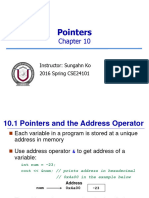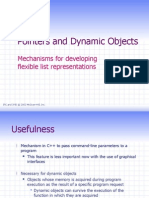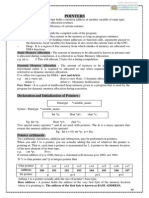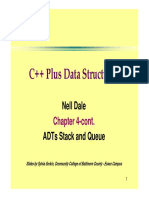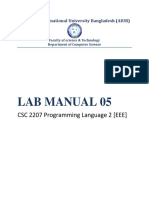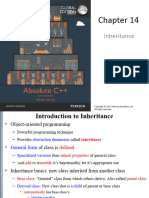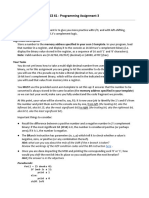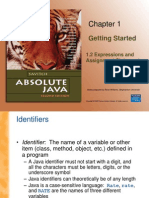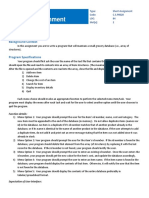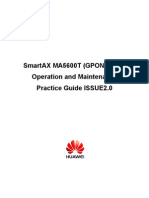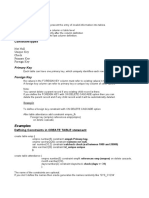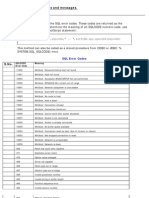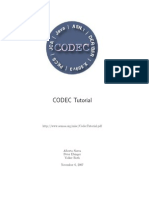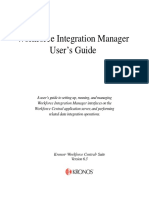0% found this document useful (0 votes)
60 views31 pagesLec8. Pointers, Dynamic Arrays, Copy Constructor
The document discusses pointers and dynamic arrays in C++. It defines pointers and how they store memory addresses. It covers using pointers to dynamically allocate memory on the heap using new and delete. It also discusses how arrays are really pointer variables and can be treated similarly.
Uploaded by
Majd AL KawaasCopyright
© © All Rights Reserved
We take content rights seriously. If you suspect this is your content, claim it here.
Available Formats
Download as PPTX, PDF, TXT or read online on Scribd
0% found this document useful (0 votes)
60 views31 pagesLec8. Pointers, Dynamic Arrays, Copy Constructor
The document discusses pointers and dynamic arrays in C++. It defines pointers and how they store memory addresses. It covers using pointers to dynamically allocate memory on the heap using new and delete. It also discusses how arrays are really pointer variables and can be treated similarly.
Uploaded by
Majd AL KawaasCopyright
© © All Rights Reserved
We take content rights seriously. If you suspect this is your content, claim it here.
Available Formats
Download as PPTX, PDF, TXT or read online on Scribd
/ 31







